UK general election 2024: In numbers

The numbers emanating from the general election results show that Labour has secured the lowest vote share to win a parliamentary majority, and that while nationalists won more seats than unionists, that unionism remains marginally ahead of nationalism by vote share.
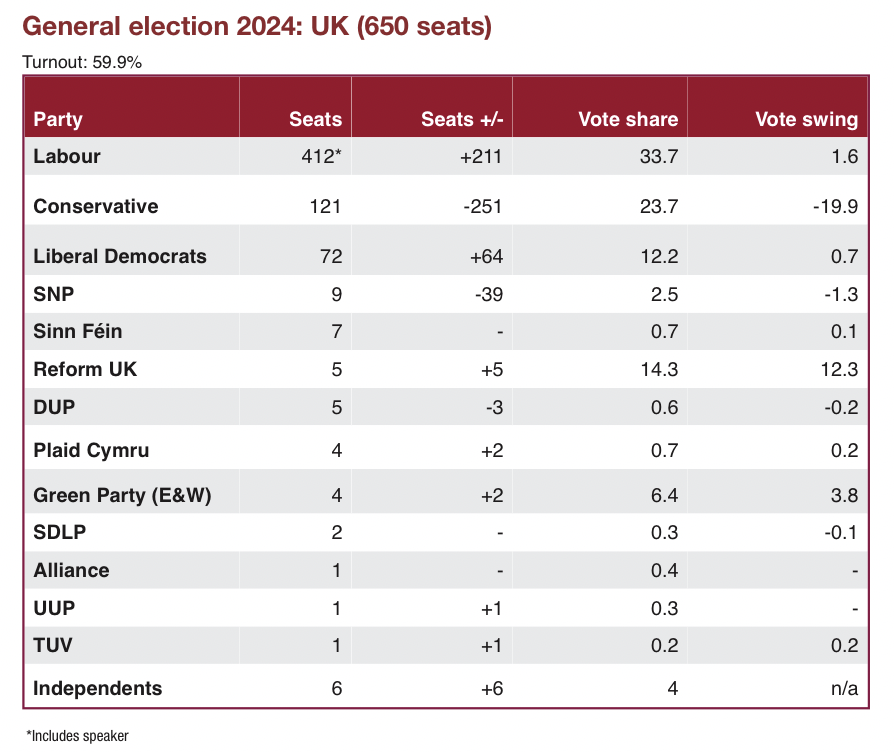
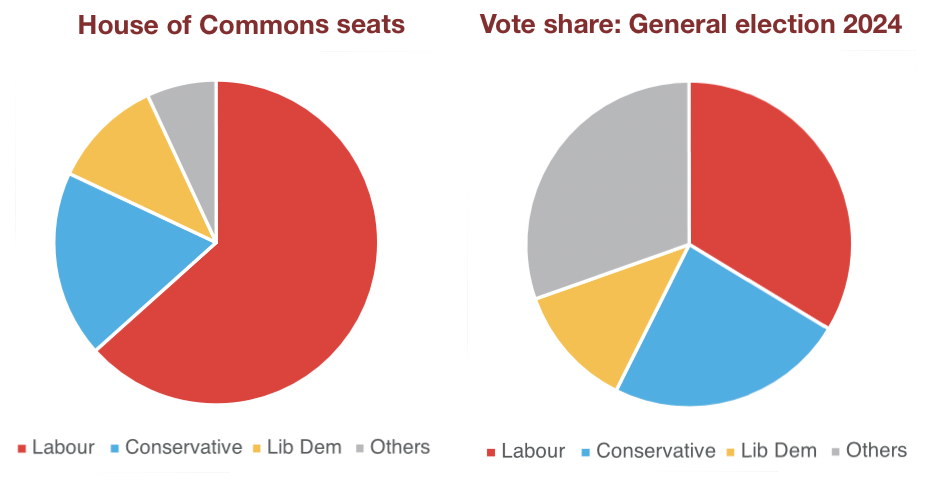
The Labour Party’s victory brings it into government for the first time since 2010. On 33.7 per cent of the vote, Labour’s share of the vote is the smallest to win a majority. Labour’s majority is 174 seats. For context, in 2019, the Tories won 43.6 per cent of the vote, but only won a majority of 80 seats.
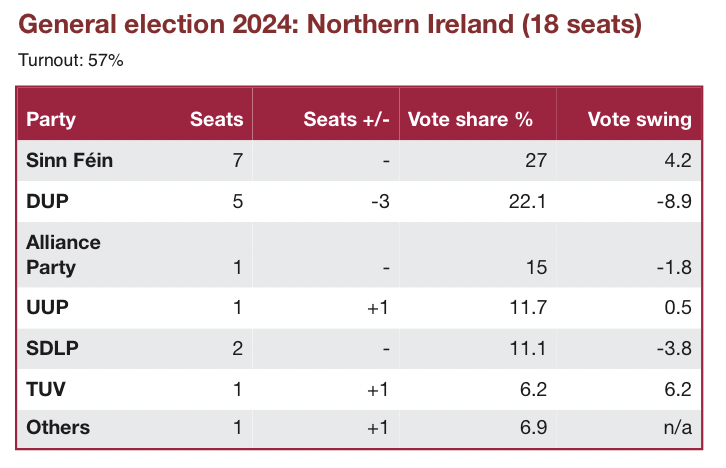
A record six different parties have been elected to represent Northern Ireland in the House of Commons, and this is the first time Sinn Féin has won the most seats in a Westminster election. However, this is the second time Sinn Féin has topped the poll in a Westminster election, having done that in 2010. Cumulatively, there are more nationalists (nine) than unionists (eight), with one MP neutral on the constitutional question.
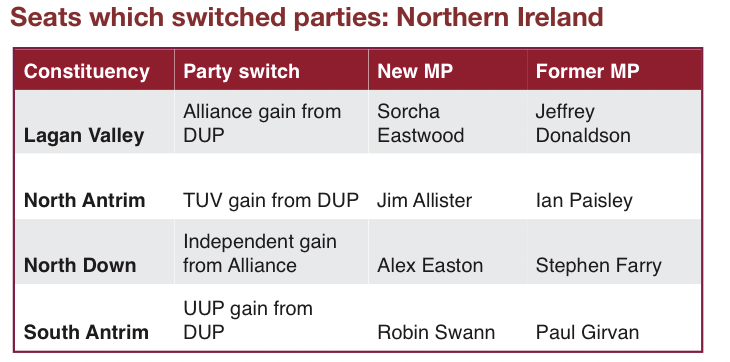
Four seats switched hands in Northern Ireland, arguably the most unexpected of these was the TUV winning North Antrim, with Jim Allister becoming the constituency’s first MP not called ‘Ian Paisley’ since 1970. Jeffrey Donaldson’s exit from politics means that Gregory Campbell is now the longest-serving MP from Northern Ireland.
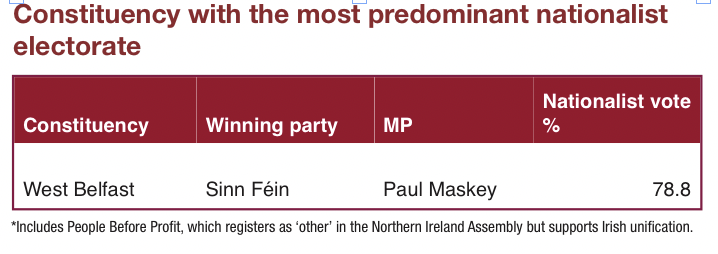
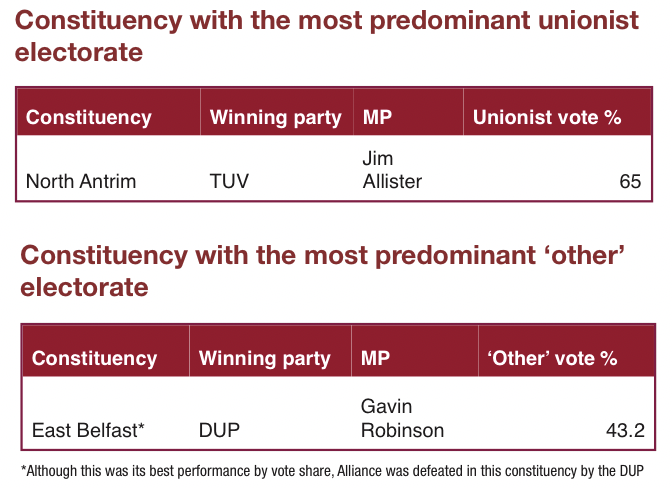
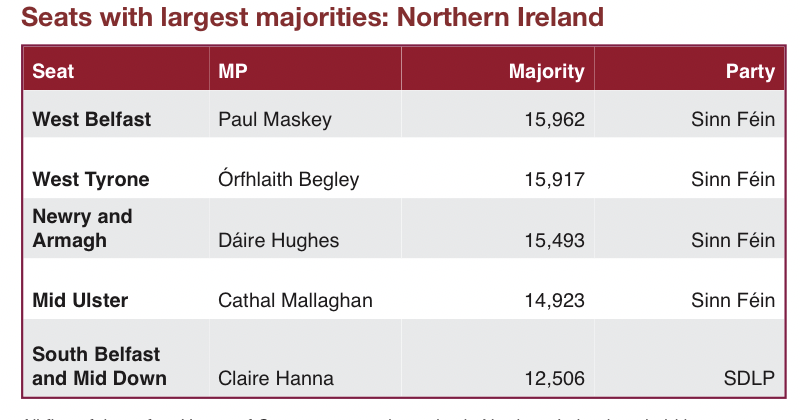
All five of the safest House of Commons constituencies in Northern Ireland are held by nationalists.
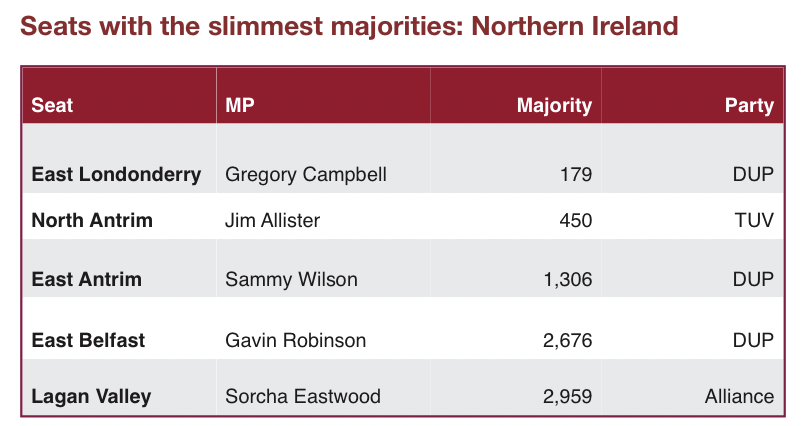
Four of the five most contested seats are held by unionists, although only one of these – East Londonderry – is contested between unionists and nationalists.





